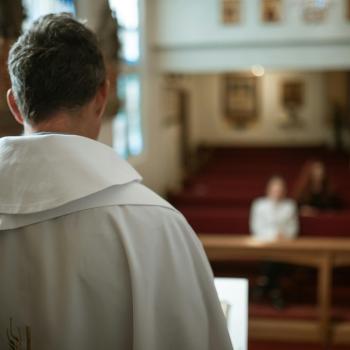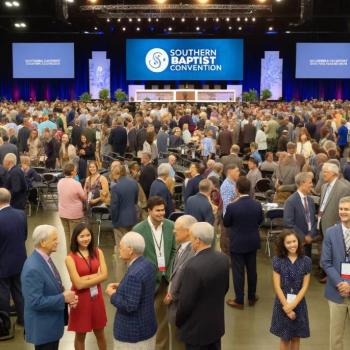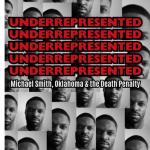
Predators are quite good at targeting and preying on churches because churchgoers are generally easy, trusting targets. Unfortunately, religious organizations are less effective in stopping predators in the church. That we know. So, what can Christian churches do?
Catholics have been dealing – or not dealing – with sexual abuse of children for decades. The Southern Baptist Convention (SBC) is taking its time finding solutions to its scandal, which is more about men attacking women than child abuse. And the Presbyterian Church in America (PCA) is dealing with its own scandal, which is smaller but equally ugly.
Sexual abuse seems rampant in the church. It makes one wonder how Christians can stop predators from preying on their churches without robbing the faith of its very essence.
Are Churches Enabling Sex Abusers?
Are churches enablers? The question is akin to asking whether a rape victim is enabling the rapist. But hear me out… or rather read what an expert says.
Nate Brooks, a professor of counseling at Southeastern Baptist Theological Seminary in Wake Forest, NC, has a few answers about how sex abuse happens. In his article When Good Doctrine Enables Abuse, he explains some of the situations that confront various denominations.
The Presbyterians
When a Presbyterian friend once insisted to Brooks that her church’s presbytery form of government makes abuse almost impossible, Brooks told her, “…this assumes that (in the case of complementarian denominations) an entirely male court of appeals is going to give a woman that they don’t know a fair hearing when the accused is someone who has been their partner in ministry for years or decades.”
Complementarian denominations believe that men and women have separate, complementary roles in the church. The Baptist denomination believes, for example, that men are the leaders in the church and at home, and women are followers.
“If clear-eyed impartiality and justice go hand in hand, the deck is rather stacked against the likelihood of justice being done in that kind of court of appeals,” Brooks told his friend.
He further explained that her reasoning illustrated a common misperception, which is that “purity of doctrine will insulate a faith community from abuse and exploitation….
“While good theology will serve to restrain wickedness better than bad doctrine, such a perspective fails to understand that oppressive individuals often leverage the very doctrines or practices we take pride in to enable their abuse,” Brooks said.
“…a person whose heart reaches out to exert coercive control will use whatever ideological resources are available to perpetuate that abuse.”
The professor explained to his friend that her church’s form of government may seem better at preventing sexual predators from going from church to church within the denomination. But with predators targeting and preying on churches, the Presbyterian model enables “abusive behavior by virtue of affirming abusive ministers.”
The Baptists
Baptist churches, unlike Presbyterian churches, lack “denominational connectivity,” which comes with its own set of problems, Brooks said. This type of organization creates greater opportunities for serial predators who target churches to go from one church to another without being caught. Thus, stopping predators in the church becomes even more difficult.
“Neither system in itself offers protection from perpetual abuse, and each may be exploited – especially when the assumption is that the system itself offers insulation from abuse occurring within your Christian community,” Brooks explained.
I would like to add that Baptist theology makes it easy for men to dominate women spiritually, psychologically and physically. It isn’t a healthy – or in some cases safe – situation for the women.
Brooks believes that giving male pastors total control “is a setup for disaster.” It puts pastors in the position of dominating their churches, serving as spiritual protectors and having “the spiritual gift of words of knowledge from God.” It’s an intimidating combination.
Twisting Church Doctrine
Matthew 7:3 43 reminds us to stop focusing on the speck in someone else’s eye and look at the beam in our own eye. And Brooks notes that people tend to overlook their own church’s faults and expect “more nefarious play” from churches whose theology is dissimilar to theirs.
“In truth, practically any doctrine or doctrinal emphasis can be twisted to give warrant to abuse,” he said.
Brooks explained:
- Focusing on original sin undermines people’s self-confidence, which may make them think they’re imagining things when they’re actually being victimized by an abuser.
- Focusing on redemption, grace and forgiveness may suggest that people should leave their pasts behind if God has truly forgiven them. (My belief is that being raped isn’t the victim’s sin. Hence, they don’t need forgiveness. And suppressing their feelings about abuses isn’t healthy.)
- Focusing on church membership may lead to manipulation and control by a powerful church leader.
- Focusing on God’s sovereignty may lead people to think their abuse is God’s will.
A church’s doctrine doesn’t reduce or eliminate abuse, Brooks said. When abusers prey on churches, they can use doctrine to their advantage, which makes stopping predators in the church more difficult.
Church leaders “do well to equally help our people recognize the way our good doctrine may be turned on its head and used for destructive ends.”
Stopping Predators in the Church
Churches need to prepare for the possibility that a convicted sex offender may return to or join their church, according to the United Methodist Church. Preparations should include meetings of the church council and others to develop a plan of action in case it happens.
Should a convicted sex offender start attending the church, the church community and the offender should negotiate a covenant that includes agreements on several important points such as….
- The offender’s participation in professional counseling for as long as he attends the church
- The use of adult “partners” to escort the offender when he is on church property or takes part in church activities
- The designation of all areas that are off limits to the offender
- Restrictions on leadership roles
- A ban that prevents the offender from having any church role that includes contact with youth or children
Ruth Everhart, a Presbyterian pastor, author, Christian feminist and sexual assault survivor, said it’s time “to rectify the power imbalances in church and society. It’s time to do justice.”
She offered seven ways you and your church can address sexual abuse:
- Be more honest in telling your own story: Tiptoeing around sexual misconduct and abuse isn’t helpful or healthy, Everhart said. It tends to foster harmful patterns of avoidance, distrust, blame and bullying.
- Be careful about what you say. Vague phrases such as “inappropriate touching” often hide the ugly realities of abuse. Instead of saying an abuse victim “had sex” with her abuser, say the victim “was raped.”
- Promote resources for victims. Post abuse hotline numbers in bathrooms, and prominently display resources for victims in the church library. Observe Sexual Assault Awareness month in April or Domestic Violence Awareness month in October and advertise small groups that help victims and survivors, she said.
- Move past talk therapy and provide victims with access to trauma-informed care. Educate yourself and find qualified health providers that you can recommend.
- Involve the entire congregation in your efforts. Create core values around your church’s response to sex abuse such as caring for vulnerable people and talking about “unspeakable” things. Draw on resources within your denomination. Hold community meetings. Create small groups where people can speak freely about abuse, Everhart added.
- Consider stopping predators in the church by creating a protection policy that involves training your church staff. Make sure the staff knows steps they should take when they suspect abuse is occurring, such as calling the police.
- Use your church’s resources, including scripture, to help abuse survivors. Pastors may want to address sexual abuse in sermons and sponsor Bible studies, for example.
“Grappling with abuse need not destroy faith, but it can enrich and deepen it. As the angels remind us mortals, ‘do not fear,’” Everhart said.
Another resource is the nonprofit Rape, Abuse & Incest National Network (RAINN), which offers a helpline, hotline and programs on preventing sexual assault, helping survivors and bringing perpetrators to justice through public education, public policy and other services.

















